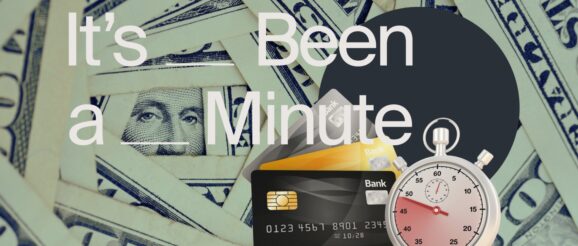‘ Klarna, Afterpay and the millennial lifestyle subsidy

It’s Been A Minute host Brittany Luse is in dire need of a new couch.
“I can feel the frame through the padding – it’s rough,” she said. “I’m not even inviting my friends over because I don’t want them to sit on this couch. They deserve better than this!”
But she said every time she finds a nice enough couch online, she chokes when she gets to the checkout page.
“Typing in my credit card number for a $4,000 couch just doesn’t feel right. It’s just a big commitment,” she said.
And every time she almost clicked “buy,” she kept noticing something. Right under the options for a credit card, Apple Pay and PayPal were options that’d let her buy the couch and break her payment down into four installments using Klarna, Affirm, or AfterPay. These companies offer “buy now, pay later” (BNPL) loans.
As the It’s Been a Minute team dug into it more, we found out that BNPL is gaining popularity – over one in five people has used BNPL according to the Consumer Financial Protection Bureau (CFPB), and most of those users have not-great credit.
But when the news broke that Klarna was partnering with DoorDash so customers could “eat now, pay later,” there was a lot of concern about the prospect of financing burritos. And after finding out from a LendingTree survey that 25% of BNPL users use the loans for everyday purchases like groceries, Brittany wondered about the risks of a necessity like food entering the BNPL universe.
“It’s about the delivery itself, not the food; it’s that convenience,” he said. “We saw the same pattern of activity with hotels and Airbnb, for example, or with like cab companies and Uber and Lyft, for example, where you had big deep pocketed investors who are financing these companies at a loss in order to build up market position and a user base and change people’s habits at a really fundamental way into this phone-mediated, always on convenience access.”
Well – that’s still up in the air.
Harris said that originally, BNPL companies didn’t have to abide by some of the regulations that most financial institutions do.
“They call it disruption, right? Disruption is the nice gloss that you put on regulatory arbitrage, because so many of these business models are about continuing a previously existing business model, but dodging the regulations,” Harris said.
“So Uber is a great example because Uber, when it was first founded, was called UberCab. And when they discovered that would mean that they were subject to all of these regulations that the cab industry was subject to, their strategy was to chop the name ‘Cab’ off. If they’d been subject to all the industry regulations, they never could have gotten off the ground. Same thing is absolutely true with Airbnb, which is not a hotel service – hotels are heavily regulated. We shouldn’t be surprised to see a regulatory arbitrage strategy from ‘buy now, pay later.'”
But last year, the CFPB essentially said BNPL companies are credit card providers. That meant that these companies had to comply with the Truth in Lending Act of 1968. And now, another wrench has been thrown in after Trump came into office.
“They issued a new interpretation in May of 2025 saying, ‘never mind about that other thing, we’re not going to focus on ‘buy now, pay later’ providers, and in fact, we’re looking at repealing that whole interpretation,'” said Harris.
And in the past, if you did get behind on BNPL payments, it wasn’t going to be reported to the credit bureaus. But as of the past few months, Equifax, Experian and TransUnion are trying to change this. So potentially, consumers are approaching a situation with BNPL where if you get behind payments, you could potentially end up with bad credit. And now with changes at the CFPB – they might not have any protections, either.
But the rise of BNPL might also be related to what some have called the “millennial lifestyle subsidy.” Some tech companies – like the ones Harris mentioned – were described using that phrase because for a long time, they offered services we already had with a newer, more convenient, and often cheaper model. But their prices have been rising for a while.
Harris said lifestyle subsidies are not new.
“There was a whole generation that came to understand itself in relation to cars and the highway system, and that was heavily subsidized by the state decision to build that highway system. I don’t think we’re the Uber generation because we loved taking Ubers, we were the Uber generation because capitalists saw an advantage in investing tons and tons and tons of money in these cab services, and we absorbed that, and it changed our lifestyle.”
Who pays for lifestyle subsidies when the bill comes due? According to Harris, it’s the consumers who are now reliant on formerly cheap services. BNPL services may help people afford them in the short-term, but more people are having trouble paying their BNPL loans back.
If we can’t afford Uber or DoorDash as easily anymore – even with BNPL – that might require all of us to rethink the price of convenience (or push us to relearn how to hail a cab, or how to make our own burritos).
As for Brittany, she’s going to a store to pick out her next couch – when she’s ready to pay in full.
